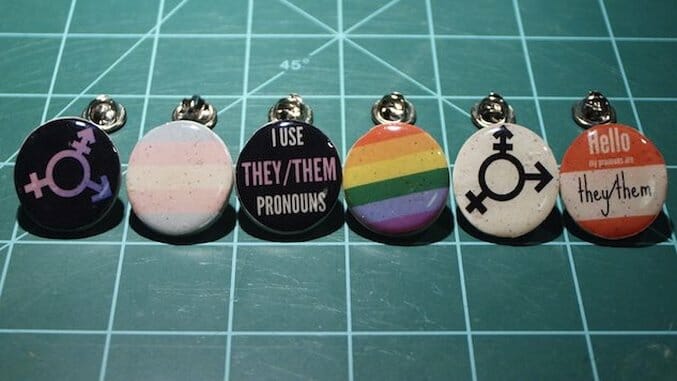Is Biological Sex a Social Construct? It’s Complicated

Much has been said already about YouTube sex educator Laci Green’s supposed “taking the red pill,” so I don’t want to rehash everything. I do, however, want to bring up one of her latest Twitter threads regarding the phrase “biologically male/female.” Teen Vogue recently published an article about anal sex where they used the terms “prostrate owner” and “non-prostrate owner” instead of “male and female.” Green criticized the article’s use of the terms on her Twitter feed, where she said, “’Female’ and ‘male’ are not identities or genders. They are biological sexes and refer to someone’s literal body parts (for reproduction).” This, along with her latest videos debating whether or not there are more thantwo genders, led many to criticize Green for being transphobic. Although she does affirm trans and gender non-conforming people’s gender identities in her latest video, the debate sparked by her recent tweets brings up a question I often hear from my fellow trans people: Is biological sex a “social construct?”
According to another YouTuber, Riley J. Dennis, the answer is yes. In a video she did back in February of this year, she explains biological sex is a social construct because not everyone experiences secondary sex characteristics the same way. “Some people with penises don’t develop much if any facial hair,” she says, “while some develop beards, and the amount of facial hair that they have doesn’t make them more or less male. The same goes for people with vaginas. Some of them will develop large breasts, some will develop small breasts, but neither of those is more or less female.” She also points out many trans people have genitals, hormones and other secondary sex characteristics altered during transitioning, so how would “biologically male/female” still apply? Ultimately the biggest criticism towards the term “biologically male/female” is that, according to Dennis, “when people say that a trans woman is ‘biologically male,’ they use that as a way to attack trans people. They use it as an excuse to exclude us from bathrooms, locker rooms and other women’s spaces. It’s just a more subtle and more socially acceptable way of discriminating against trans people.”
Biologist Jerry Coyne, on the other hand, disagrees. For example, he writes, Dennis’ example of medical transitioning “irrelevant to the argument from biological sex as a reality at birth. I could use lasers to remove the sex combs of Drosophila males (stiff tufts of bristles on the forelegs that males use to grasp females during copulation), but that doesn’t mean that sex in Drosophila is a social construct.” Coyne later clarifies that he affirms transgender people’s identities, and acknowledges bigots often use biological sex as an excuse to discriminate against trans people. However, he continues, “The concept of biological sex has been extremely useful in biology—it’s a linchpin of a ton of research in evolutionary biology and other fields, and, with very few unclassifiable cases, it’s an objective reality.”
While both Dennis and Coyne made good points, I decided to ask trans activist and biologist Julia Sereno for her take. It turns out that, like with most science, it’s complicated.
“The notion that there are two discrete sexes is biologically incorrect,” she says. “While there are a number of sexually dimorphic traits – such as chromosomes, gonads, external genitals, other reproductive organs, ratio of sex hormones and secondary sex characteristics – these traits may not all align (i.e., all male, or all female) within the same person, as is the case for intersex and transgender people.”
-

-

-

-

-

-

-

-

-

-

-

-

-

-

-

-

-

-

-

-

-

-

-

-

-

-

-

-

-

-

-

-

-

-

-

-

-

-

-

-








































